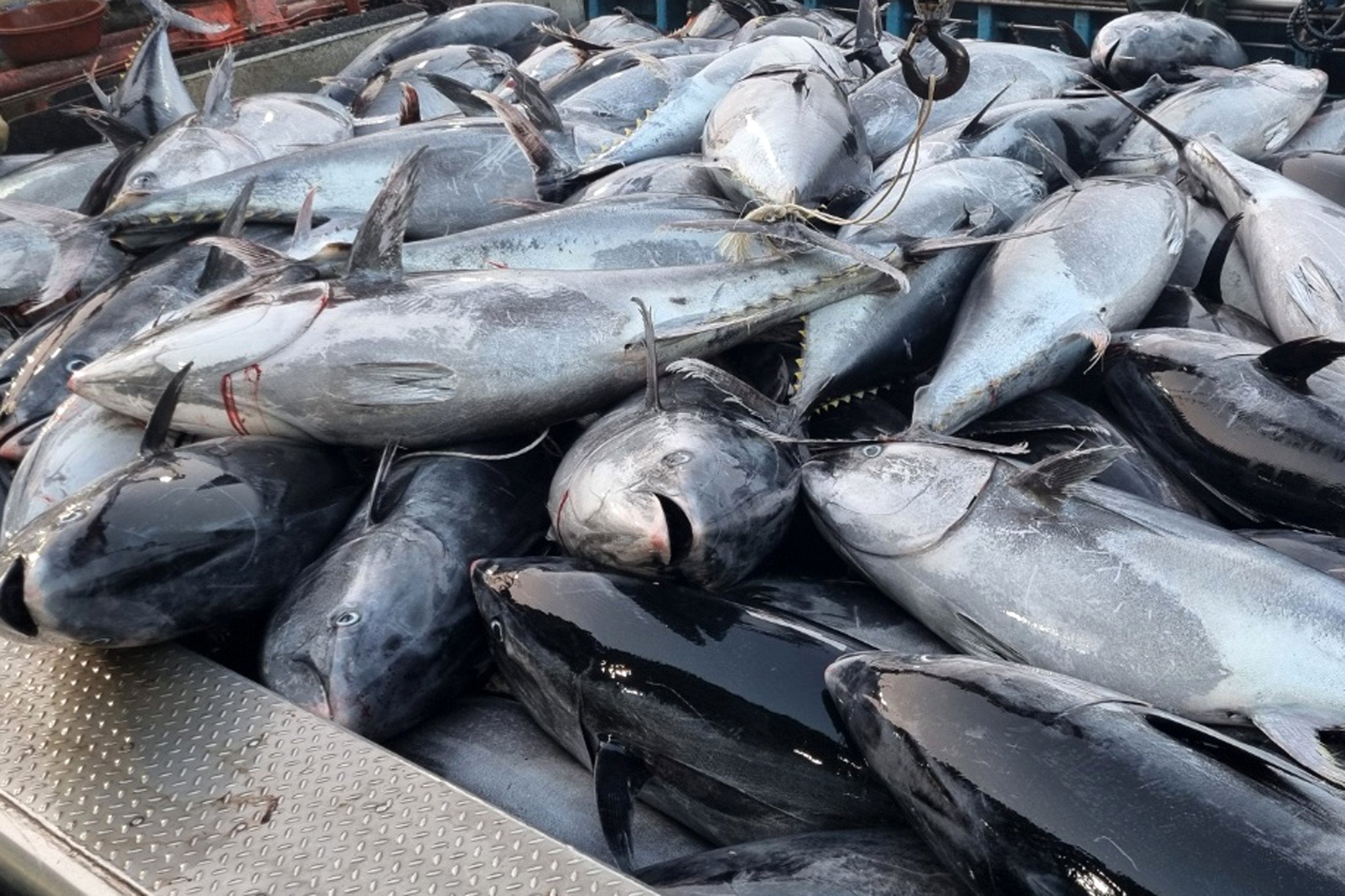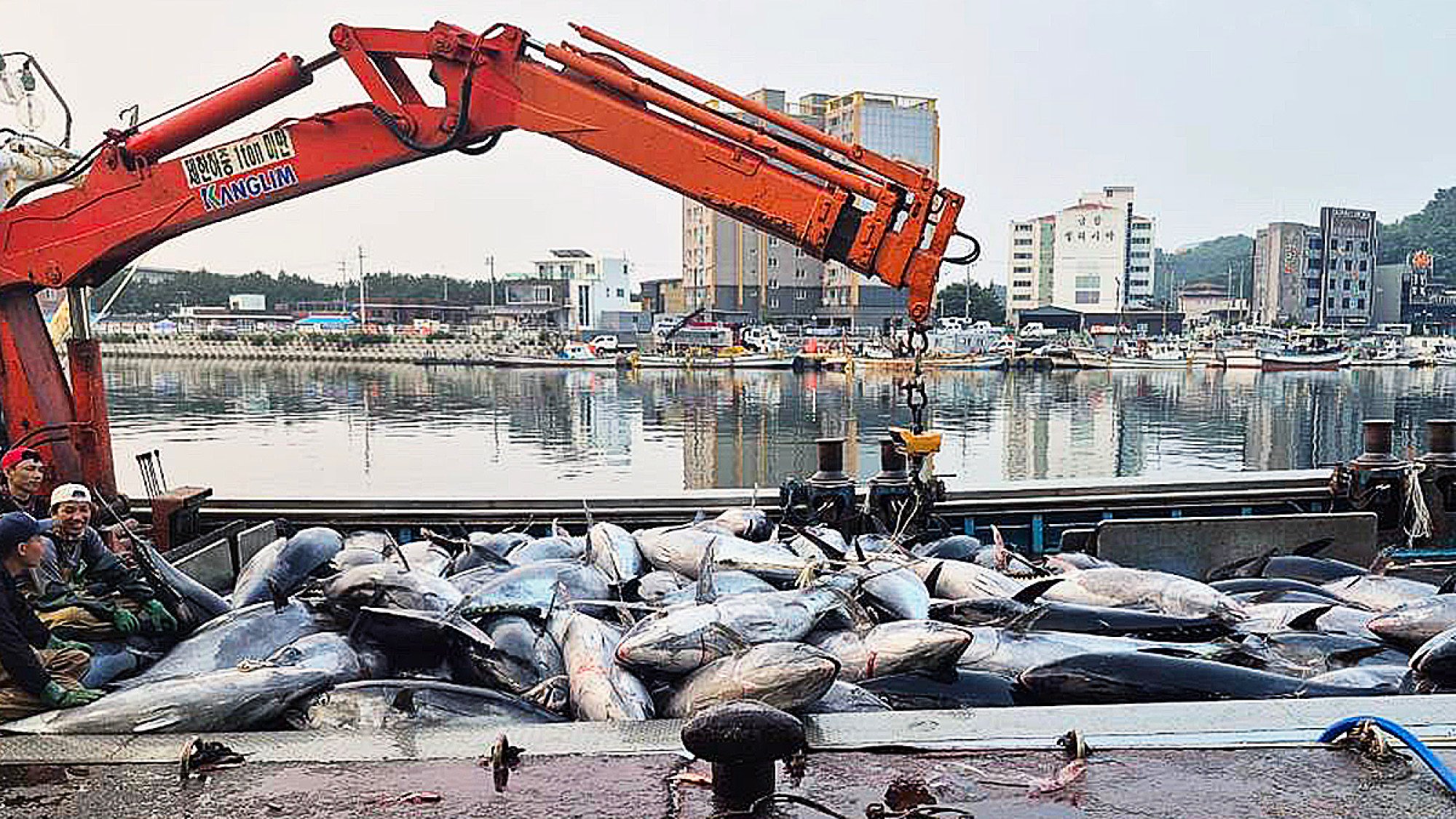Off the hook: South Korean fishers forced to dump US$1.9 million of bluefin tuna
After catching more than 1,300 bluefin tuna, the fishers from Yeongdeok county had to throw away the fish under an international obligation

A bountiful haul of bluefin tuna by South Korean fishers earlier this week came with a catch: they had to throw away more than 1,300 tuna valued at about US$1.9 million into the waters after exceeding an annual regional fishing quota.
The mass dumping has sparked calls from the local industry for more flexibility in balancing between fulfilling obligations on fishing limits and maritime conservation.
The tuna was accidentally caught by fixed nets meant to trap smaller species like mackerel and squid off the coast of Yeongdeok county. The big fish were believed to have been chasing mackerel and sardines when they became entangled in the net, the Korea JoongAng Daily newspaper reported.
As each fish was between 1 metre and 1.5 metres (3.3 and 5 feet) long and weighed between 100kg and 150kg (220lbs and 330lbs), the catch should have been a windfall for the fishers.
Similar bluefin tuna had sold for 14,000 won (US$10) per kilogram at an auction in South Korea on Sunday. At an average of 140kg, the 1,300 tuna could have fetched about 2.55 billion won (US$1.9 million), The Korea Herald newspaper reported.
The fishers had to throw all their catch on Tuesday as their county had already met its yearly bluefin tuna limit.

Once the quota is reached, any fisher caught selling or bringing ashore bluefin tuna can face up to two years in prison or a maximum fine of 20 million won under the Fisheries Act.
The limit was set by the Western and Central Pacific Fisheries Commission – a 26-member body spanning different continents – to protect the species, which is categorised as vulnerable due to overfishing. Countries with maritime borders are given a quota each and this is then divided up among their local regions.
Of North Gyeongsang province’s 110 tonne (121 ton) limit for bluefin tuna for 2025, only 35 tonnes had been assigned to Yeongdeok county. The county received additional allocations earlier this year, but by last week, it had caught close to 100 tonnes, well above its limit even with those extras.
“The quota has already been exhausted, and the fishermen brought in the catch unaware,” an official told the Korea JoongAng Daily. “Once the quota is exceeded, bluefin tuna caught in stationary nets must be released at sea. Even if we request an additional allocation immediately, approval takes time, and because tuna spoils quickly, the entire catch had to be discarded.”
Fishers and authorities are calling for a more flexible approach to quotas to avoid financial losses and environmental pollution from such wastage.
“We plan to formally request an additional quota for bluefin tuna caught in stationary nets,” a Yeongdeok county official said.
Unhandled type: inline-plus-widget {“type”:”inline-plus-widget”}
In July 2022, over 1,000 dead tuna washed up on a beach in Yeongdeok after being dumped by local fishers due to the quota.
Bluefin tuna catch off South Korea’s east coast has surged from just over 3 tonnes (3.3 tons) in 2020 to almost 164 tonnes (180 tons) last year, as rising sea temperatures brought on by climate change lure these subtropical fish further north.